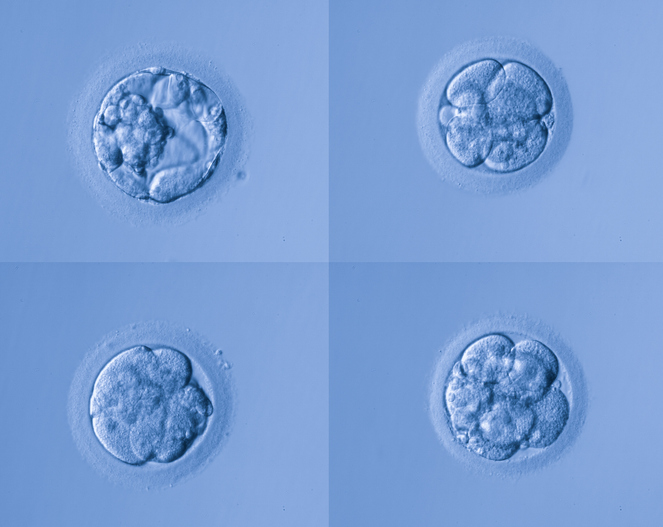

“How much do egg donors make?” It’s a question that tends to come up when you tell a friend that you’re thinking about donating your eggs to help someone else conceive.
But is it legal to make money as an egg donor? Is it ethical? Here’s what the experts have to say about egg donor compensation, and what the process will look like if you decide you want to become an egg donor.
Can you make money from donating your eggs?
Let’s answer the big question first. While it’s illegal to sell or buy human organs and tissues in the United States, technically it’s legal for someone to make money when donating her eggs. While laws regarding egg donation vary from country to country, in the US a woman is allowed to request reimbursement during the egg donation process.
While there are no federal guidelines regarding egg donation compensation, several state legislatures have passed laws relating to the process. Both Arizona and New York require agencies to share information about the types of medicines a woman will have to use during egg donation and any risks in the process.
Meanwhile, the state of California has enacted legislation that requires all advertisements for the egg donation process to include an express warning that ‘‘not all selected egg donors receive the monetary amounts or compensation advertised.’’
There are also laws in some states, including New York, that forbid women from making money for their eggs themselves, although they do allow for reimbursement for medical costs, physical discomfort, and inconvenience.
Is it ethical?
Experts in the field of reproductive medicine, on the other hand, have a lot to say about what is ethical in the world of egg donation and how much egg donors make.
SEEDS, the Society for Ethics in Egg Donation and Surrogacy, has called on egg donation agencies to avoid focusing on compensation when they’re advertising to potential egg donors. The ethics organization also frowns on donor agencies that make comparisons between how much a woman can make if she donates her eggs in one place or another.
Similarly the American Society for Reproductive Medicine (ASRM) released an agency opinion in 2021 warning that monetary compensation could unduly influence women who participate in egg donation and could create the potential for exploitation. In the official opinion from the leading non-profit agency working to advance the science around reproductive medicine, ASRM’s doctors said monetary compensation raises ethical issues “on the grounds that
it conflicts with the prevailing belief that gametes should not become products bought and sold in the marketplace.”
ASRM has called for price ceilings to help reduce this burden on intended parents, and we stand with them. We likewise stand with the experts who have called for more regulation into the process to ensure women are not feeling unduly influenced or misled when they’re making intensely personal decisions about their reproductive choices.
How do donor-conceived people feel?
Regulation into the process isn’t just about helping intended parents and the women who are looking to donate their eggs. It’s also about doing the right thing for the children brought into this world.
A 2021 Harvard study found that 62% of donor-conceived adults felt the exchange of money for donor gametes was wrong, and 41% were troubled by the fact that money was exchanged around their conception.
Many donor-conceived people have called for reform of the process in recent years, including limits on any money changing hands. In a survey of donor-conceived people conducted by the non-profit We Are Donor Conceived in 2020, they found that:
- 47 percent would support a total ban on payment for egg, sperm, or gamete donation
- 37 percent would support a maximum payment for gametes and embryos
Clearly feelings from donor conceived people about any financial involvement in the donation process vary widely.
As one person conceived with a donated egg and donated sperm put it in the aforementioned survey, “Don’t donate for the money. Understand that you are having children, playing a part in creating people with their own complicated emotions and thoughts.”
Egg donation with Freeze by Co
Our members donate their eggs to intended parents because they want to. And they get to have frozen eggs for their own future use as well. We think it’s a win-win.
ASRM’s ethics opinion calls for “fair compensation for oocyte donation [that] is in line with routine reimbursement for medical service.” That’s exactly what we offer to our members.
Members of our Split program decide to donate half of their eggs to help intended parents with their reproductive journey. Instead of making money, here’s what they receive:
- Free storage of their own eggs in cryopreservation for up to 10 years
- Coverage of all medical costs for the egg donation process
- Connection to the Cofertility community for support all along the way and after too
- The ability to work with the intended parents to decide together what your relationship will look like
If giving your eggs to intended parents sounds like something you would like to do, you may be able to qualify for the free egg freezing process and have your donation process covered too.
At Freeze by Co, we don’t want women to be exploited or unduly influenced to give eggs to anyone. We don’t want intended parents to be forced to spend huge sums of money just to get the help of an egg donor. And we don’t want donor-conceived people to feel like a donation occurred “for the money.”
Find out more about Freeze by Co, and take our quiz to see if you qualify for Split!










